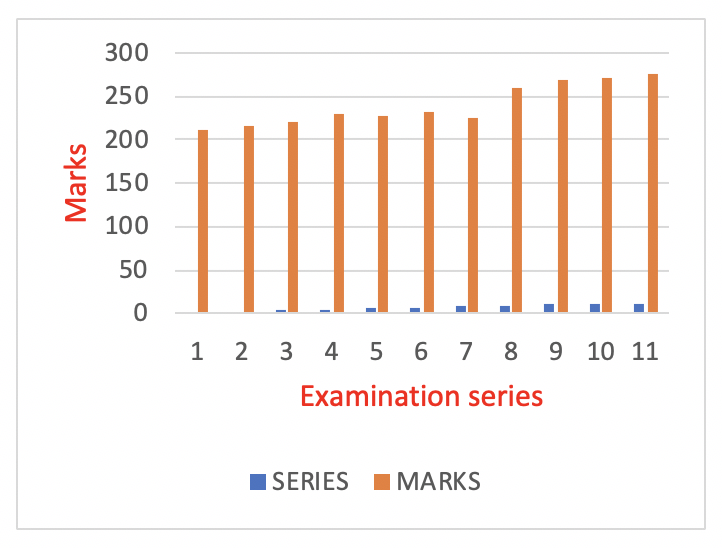Almost one year ago, we focused on Bahati Primary School, around two hours’ drive down a dusty road from Kilifi Town, one of the most rural regions in Kenya, where the mainstay of the economy is tree and crop planting. Despite its remote location and limited resources, the school continues to be one of the most successful in iMlango.
The teachers are strongly engaged and ensure that the lab timetable is well adhered to, having overcome their “ICT phobia”, as we reported last January. Attendance monitoring is carried out efficiently, and the proportion of pupils at this school who attend the computer lab lessons has always been consistent. However, this term the school has been experiencing power related challenges that have caused frequent blackouts in the area, hence there has been a downturn in access. Nonetheless, during days with power, the computer lab is utilised to its maximum potential.
The school has population of 177 girls and 196 boys with 12 teachers. One of the students is Lucy. She is 13 years old, and lives with her mother and two siblings in a village called Ngamani. Lucy is in Standard 5, and loves learning in the ICT lab. As well as accessing the facility during school hours, she chooses to spend her lunch and games times there too! She says: “When I go to the lab, my favourite content is Stories, Longhorn and Maths 123. Each of these areas offers me a different learning experience. I look forward to coming to school to gain more knowledge”.
True to her statement, the chart below shows the proportion of time Lucy spent accessing the content in October 2019. (NB: Maths:Literacy has an 80:20 time split in the curriculum, hence the seemingly heavy weighting on the former).
Proportion of time spent accessing content on the learning platform
Apart from Maths and enjoying reading and carrying out the comprehension tasks in Stories, Lucy has worked through the relevant revision exercises on Longhorn. A programme-generated report for the year has shown that she has successfully completed revision tasks and 13 assessments in English, and others in Science, CRE and Kiswahili.
Is all Lucy’s hard work having the desired effect? It certainly seems to be, at least in English, and her consistent access to assessment papers via Longhorn has helped her to prepare for her school-based exams. Her English teacher, Mr. Safari Thoya, says “the Longhorn quizzes in the iMlango portal have the same structure as the exams we do in class, and I believe having regular practice with them can help a pupil to build confidence, even when sitting for the exams”. Indeed, the report shows Mary’s progress in her Opener, Mid and End of Term exams in each of the 3 terms (see graph below):
At the end of this academic year, Lucy’s consistent access to the online learning materials has without doubt helped her to achieve the fantastic grades she has attained this year, scoring 92% in Maths, and 90% in English in the end of year exams. This makes her the second highest performing student, and highest performing girl in the class.
iMlango has enabled Lucy to attend school and has thus provided the key to her learning to read, understand and write. She has applied herself exceptionally well and can now be very proud of her success. Keep up the good work, Lucy – the future looks bright!
Until next time,
The iMlango Team







